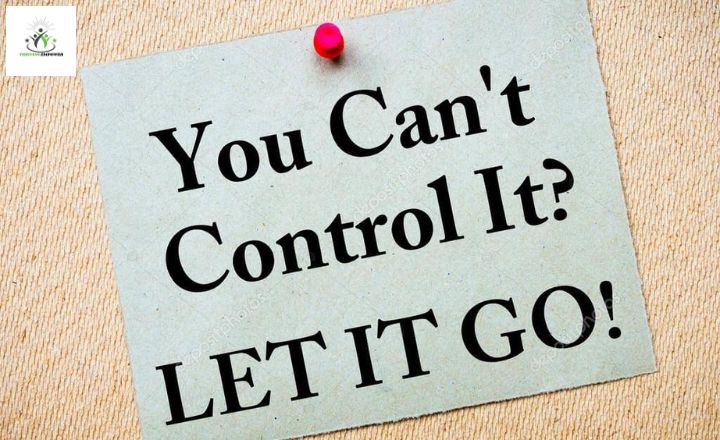Stop being pushy Most people can relate to the discomfort that comes with being coerced into doing something, especially when the person behind the pushy behavior has questionable motives. It’s a common scenario where one partner feels suffocated by the overbearing in a relationship.
So, if you’re tired of feeling like you’re constantly under pressure from your partner’s demanding behavior, it might be time to hit the brakes on being pushy before it drives a wedge between you both.
The feeling of being pushed into decisions or actions by a partner who fails to consider your perspective can be suffocating and damaging. But fear not, for there is a way out of this cycle of manipulation and dominance.
In this article, you will learn on how to stop being pushy in a relationship and foster a healthier dynamic based on understanding and mutual respect.
Why is it Important to Stop Being Pushy in Relationships?

Being pushy in relationships can create a sense of pressure and unbalance between partners, ultimately leading to strain and dissatisfaction. Instead of fostering a healthy dynamic based on mutual respect, being pushy can evoke feelings of frustration and resentment.
It is essential to recognize that each individual has their own pace and boundaries, and respecting these differences is crucial for building a strong foundation in any relationship.
By letting go of the need to control or force outcomes, partners can cultivate trust and authenticity within their connection. Accepting open communication and flexibility allows for organic growth and deeper intimacy to flourish naturally.
Stepping back from being pushy enables both individuals to truly be themselves within the relationship, leading to greater harmony and fulfillment in the long run.
It’s vital to allow relationships to grow naturally and give each other space to breathe and foster individual growth.
What does it mean to be Pushy?
Being pushy means trying to swim against the current of someone else’s wishes, continuously pushing your own agenda without considering their perspective. It entails a sense of entitlement and a lack of empathy towards others’ boundaries or autonomy.
Pushiness may sometimes be necessary in certain situations to achieve goals, but it’s essential to be mindful of how one’s actions may impact those around them.
When someone is perceived as pushy, it can create tension and conflict in relationships as it may come across as domineering or overly aggressive. It’s important to strike a balance between being assertive and respecting the perspectives of others.
Strategies For being not be Pushy
Here are some strategies about how to not be pushy in a relationship.
Don’t Treat Your Partner As a Child
When you constantly treat your partner as a child, you diminish the mutual respect and understanding that should be the foundation of any healthy relationship.
Don’t underestimate their capabilities or overlook their autonomy by assuming they need constant supervision or guidance. Remember, they are adults with their own thoughts, feelings, and experiences that shape who they are.
Allowing your partner to have independence and make decisions without your interference can strengthen your bond and foster a sense of equality in the relationship.
By acknowledging their maturity and honoring their right to autonomy, you demonstrate trust in their judgment and show that you value their individuality. Avoid falling into the trap of being controlling or acting like a parent figure.
Speak Positively About Your Partner
When faced with challenges in a relationship, it can be easy to fall into the trap of speaking negatively about your partner to friends and family. However, portraying your partner as the sole problem in the relationship is not only unfair but also counterproductive.
Every partnership involves two individuals, each contributing their fair share to both conflicts and resolutions. By shifting the narrative and focusing on positive aspects of your partner, you can change the dynamics of your relationships for the better.

Positive self-talk examples can include expressing gratitude for your partner’s support, acknowledging their efforts in daily tasks, or simply complimenting them on qualities you admire.
Remember that words have the power to build up or tear down, so using positive language when talking about your partner can strengthen the foundation of your connection. This not only boosts their self-esteem but also strengthens the bond between you two.
Instead of focusing on their flaws, highlight their strengths and accomplishments. When you find yourself contemplating negative thoughts about your partner, try shifting towards positive affirmations, instead, watch how it transforms your relationship for the better!
In moments of tension or disagreement, practicing self-discipline quotes by choosing kind and affirming words can help diffuse conflicts and foster understanding.
Let go of Control
Letting go of control can be a challenging but transformative process. It’s natural to want things done a certain way, especially in relationships, but being too pushy relationship may indicate underlying control issues.
By recognizing this behavior and actively working to release the need for control, you allow space for growth and mutual understanding. Letting go doesn’t mean you care any less; it simply means trusting others to handle things in their own way.

Allowing people room to make their own mistakes is crucial for personal development. When you constantly interfere and try to control every aspect of a situation, you rob others of the opportunity to learn from their own experiences.
By stepping back and letting others take responsibility for their actions, you empower them to learn from their experiences and become more independent individuals. Embracing this mindset not only fosters healthier relationships but also promotes personal growth.
Respecting Boundaries
Respecting boundaries is not just a sign of maturity, but it’s a fundamental aspect of healthy relationships. It involves acknowledging and accepting the unique limits set by each individual. Pushing someone beyond their comfort zone only creates tension and can lead to broken trust.

By respecting boundaries, you show genuine care and consideration for the well-being of others. When you respect boundaries, you show an understanding of individual freedom and self-respect.
It’s important to recognize that everyone has the right to define what is acceptable or unacceptable for themselves. Building trust through respecting boundaries establishes a solid foundation for open communication and mutual respect in any relationship.
Talk Less, Listen More
When you prioritize listening over speaking, you show respect and empathy towards others, creating a supportive environment for fruitful conversations.
By tuning into the nuances of someone’s words and emotions, you demonstrate that their opinions and experiences are valued, leading to more meaningful interactions.
Through attentive listening, you expose yourself to diverse perspectives and new ideas that challenge your preconceptions. This opens up opportunities for learning and adaptation as you incorporate different viewpoints into your own worldview.
By quieting your own voice in favor of actively engaging with others’, you start on a journey of continuous improvement and understanding in both personal and professional realms.
Remember that every person has a unique story to share and valuable insights to offer. All it takes is a willingness to quiet your own voice and let it be heard.
Avoid Interrupting

When you interrupt others, you are not only disrupting the flow of the conversation but also displaying a lack of consideration for the other person’s thoughts and opinions.
By cutting off someone mid-sentence, you are essentially signaling that your voice and viewpoint take precedence over theirs. This can lead to feelings of frustration and can hinder effective communication.
Frequent interruptions can create a toxic communication dynamic where one person dominates the conversation while others struggle to share their thoughts. In such situations, valuable ideas may be lost, and relationships can be strained.
It’s important to practice active listening and allow each person the space to express themselves fully before responding. By valuing everyone’s input equally and showing respect for their perspective, you turn a more harmonious and productive exchange of ideas.
By actively listening and waiting for your turn to speak instead of interrupting, you show respect for the other person’s thoughts and opinions.
Practice Empathy
Empathy is not just about understanding someone’s emotions but genuinely feeling them too. It’s like stepping into a different emotional world and experiencing it firsthand. It is the bridge that connects you all on a human level, and promotes a sense of shared humanity.
When you practice empathy, you open the door to deeper connections and more meaningful relationships because you are tuning in to others’ needs and responding with compassion.
This heightened awareness allows you to navigate social interactions with greater ease and grace, as you are better equipped to respond sensitively to others’ emotions.
Instead of being pushy in your interactions, empathy allows you to approach situations with sensitivity and consideration. It will not only benefit those around you but also foster personal growth and awareness in yourself.
Don’t Compare Your Partner with Other
Comparing your partner to others can be damaging to your relationship. It sets unrealistic expectations and puts unnecessary pressure on your loved one. Each person is unique, with their own strengths and weaknesses. Comparison breeds insecurity and can sow seeds of doubt in the relationship.
By comparing them to someone else, you risk overlooking the qualities that make them special. They may feel like they need to live up to an idealized version of themselves that is not truly who they are. This can create tension and resentment in the relationship.

Instead of looking at others as a measure for your partner, focus on appreciating them for who they are. By doing this, you will create a more positive and supportive environment in your relationship, allowing both partners to thrive and grow together in a healthy way.
Accept Imperfection
Accepting that you’re imperfect is not a sign of weakness, but rather a key to growth and self-improvement. Most times, pushy people believe that they cannot make mistakes, leading them to project their own flaws onto others.
This behavior can strain relationships and create unnecessary tension. By acknowledging your imperfections, you can encourage a more empathetic and understanding attitude towards yourself and others.
It’s important to remember that there is no such thing as a perfect human being. Embracing your imperfections allows you to let go of unrealistic expectations and be more forgiving towards both yourself and your partner.
Conclusion
Being pushy in a relationship can lead to dissatisfaction, frustration, and ultimately harm the connection between partners. It is important to communicate openly, listen actively, and respect each other’s boundaries in order to foster a healthy and strong relationship.
By practicing patience and understanding, both individuals can create a more harmonious and fulfilling partnership. Let go of the need for control or validation, and instead focus on building trust and mutual respect with your partner.
Stop being pushy in your relationship and start prioritizing empathy and cooperation for a more loving and sustainable connection.

